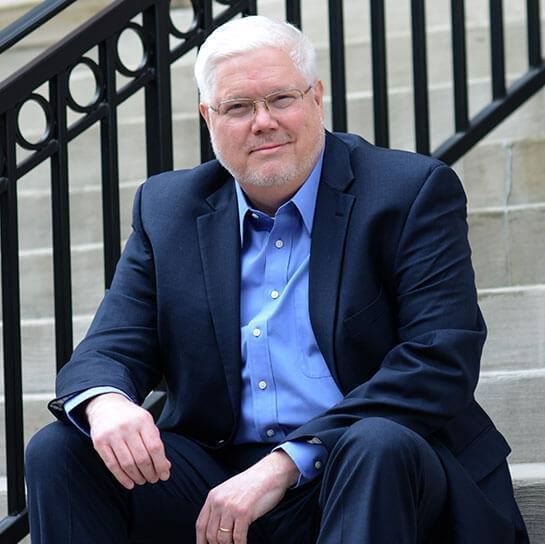The Parliament of Ukraine recently reached out to the National Judicial College (NJC) for assistance with revamping its judicial system at three different levels. The NJC responded by asking nine United States judges to write position papers for the parliament. Three judges were asked to handle appellate court recommendations, three judges gave General jurisdiction recommendations and three judges, including Judge Greg Smith of Pleasant View, Tennessee, covered recommendations for small claims courts.
"I'm humbled to be entrusted with this important task by the National Judicial College and the Country of Ukraine," said Judge Smith. “Of all the judges that you could find, why me was what I was thinking.”
It is not surprising, considering Judge Smith’s taught for the NJC for the past eight to nine years and the college is familiar with his work.
“They’ve seen the Municipal Judges’ Bench Book was cited by the Harvard Law Review and I wrote that,” said Judge Smith. “I think it was as much a trust issue as knowing the area I am familiar with.”
The Parliament of Ukraine made a resolution about six months ago to revamp its judicial system in an effort to rid it of corruption. Now, it is ready to act based on the recommendations from U.S. judges.
“The first thing I thought about were the rural courts for Tennessee,” he said. “If we had to fragment the General Sessions Courts in a big city like Nashville, it wouldn’t be a big deal because you just go across the hall to the other court. In a smaller jurisdiction, a more rural one such as a Macon County, you may only have one General Sessions judge and they may not sit every day of the week. They may sit two or three times a month, which meant that it would be almost doubling the expense and almost tripling the workload because you would either have to get another judge or rotate everybody around, which is exactly what Ukraine is currently doing.”
Judge Smith was given 14 days to complete his position paper and estimates he spent a little over 100 hours writing it. Nineteen pages and 150 footnotes later, his recommendations for Ukraine’s small claims courts focus on the way Tennessee’s General Sessions Courts are run.
“One of the things that’s interesting about Tennessee’s version of General Sessions is they are referred to justice of the peace courts versus small claims courts,” said Judge Smith. “Most states do not have a General Sessions type court that does a crossover of both civil and criminal. Usually the small claims courts are very similar to my trial court over in Pleasant View, purely civil or fine only. I think that was part of what they were looking at for Tennessee.”
Also included in Judge Smith’s position paper was some advice he received when he received his judgeship. That advice came from the late Judge John Godbold, U.S. Court of Appeals for the Fifth Circuit, 11th Circuit Court of Appeals and law school friend.
“He said, ‘Everybody in your small town will know who you are. Hardly anybody knows who I am, but they are going to determine what all judges look like by what they see in you,’” said Judge Smith. “’And if the courts are supposed to be the most trusted branch of the three-branch government, they’re going to determine whether or not they can trust other judges and trust the government in general by how you conduct your business.’ What he told me was don’t make me look bad. That’s basically the same advice I gave them. If you want the government in general trusted, Ukraine has to get past the current perception that their judiciary is basically puppets for the people in charge.”
Despite calling his contribution “a drop in a tidal wave,” Judge Smith hopes he can make a difference for the people of Ukraine.
“The main difference that I hope to make is that they can trust going in front of a judge because as long as the judge is neutral only the facts of law dictate the answer, not who’s closer to any lunch date with the judge,” he said.
Judge Smith believes the papers have already been translated from English to Ukrainian and are now headed to the Parliament for review.
“Shakespeare’s famous quote, ‘The first thing we do is kill all the lawyers,’ That phrase, if you put it into context, was because the people who were saying it wanted anarchy and the law is what stops anarchy. If Russia can cripple Ukraine’s judiciary, chaos follows.”
Judge Smith is hopeful he will hear, at some point, whether or not the Parliament of Ukraine put his position paper into practice. He is also interested in teaching Ukrainian judges in the future, something some of his colleagues are currently doing.

